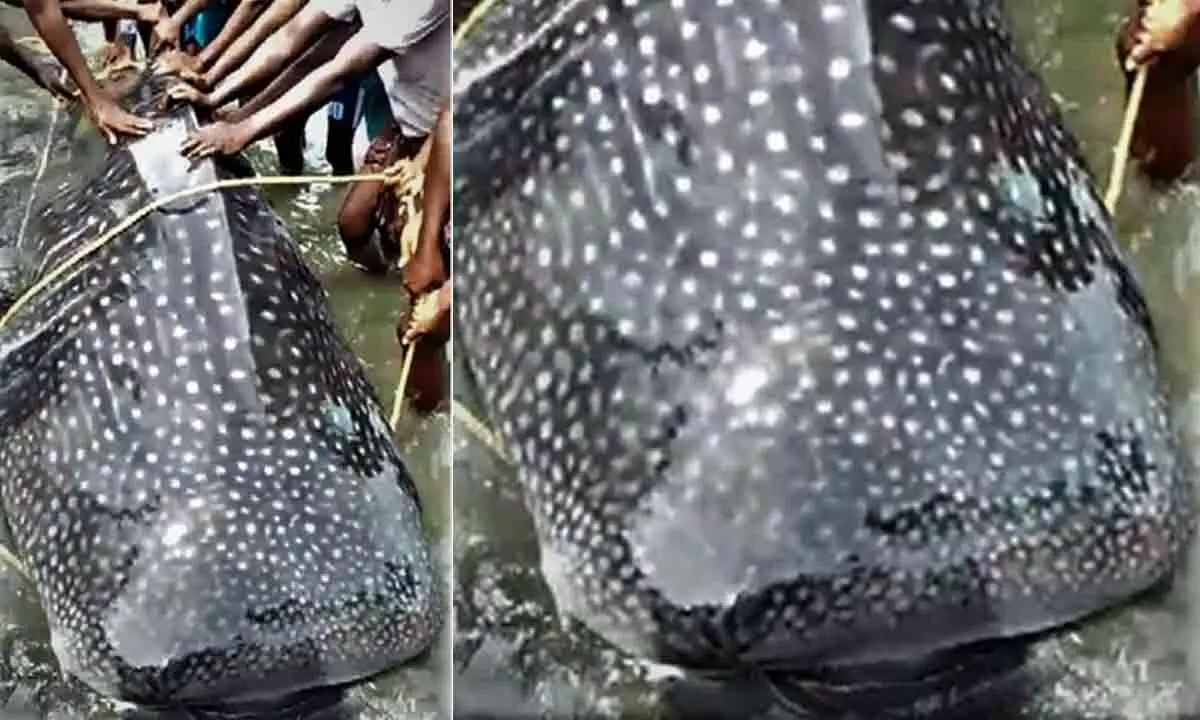CMFRI proposes 'shark hotspots' to protect endangered species
Share :

The ICAR-Central Marine Fisheries Research Institute (CMFRI) has proposed to demarcate "shark hotspots" in Indian waters to implement spatio-temporal fishing regulations, given the declining trend of shark catches.
Kochi : The ICAR-Central Marine Fisheries Research Institute (CMFRI) has proposed to demarcate "shark hotspots" in Indian waters to implement spatio-temporal fishing regulations, given the declining trend of shark catches.
This move aims to safeguard endangered species, juveniles, and breeding adults from targeted fishing.
Presenting the status of shark fishery in India at a consultative meeting on the conservation of sharks held here, Dr Shoba Joe Kizhakudan, Head of the Finfish Fisheries Division of the CMFRI said that sharks have not evolved to withstand over-exploitation.
"They cannot reproduce fast enough to make up for the increasing number of deaths every year as most sharks have a long lifespan and low reproductive output. The presence of juveniles in landings further intensifies the threat to their sustainable population," he said.
According to CMFRI, the landings of elasmobranches, a group that includes sharks, rays, and guitarfish, declined by approximately 55 per cent between 2012 and 2022.
Highlighting CMFRI's research works on sharks, CMFRI Director Dr A. Gopalakrishnan said the institute in the next five years will focus on understanding the complex interplay between fishing activities and other factors affecting shark populations.
"CMFRI has been recognised as CITES (Convention on International Trade in Endangered Species of Wild Fauna and Flora) Scientific Authority in India and is responsible for conducting Non-Detrimental Finding (NDF) studies on CITES-listed marine species. Six NDF documents covering 11 resources have been brought by the institute so far," he added.
Gopalakrishnan also said that annual landing estimates of 121 species of elasmobranches from the Indian EEZ are being carried out by CMFRI.
"The government of Oman has requested CMFRI's technical guidance for their shark and ray research programmes, including the use of classical and genetic taxonomic identification tools," he added.













